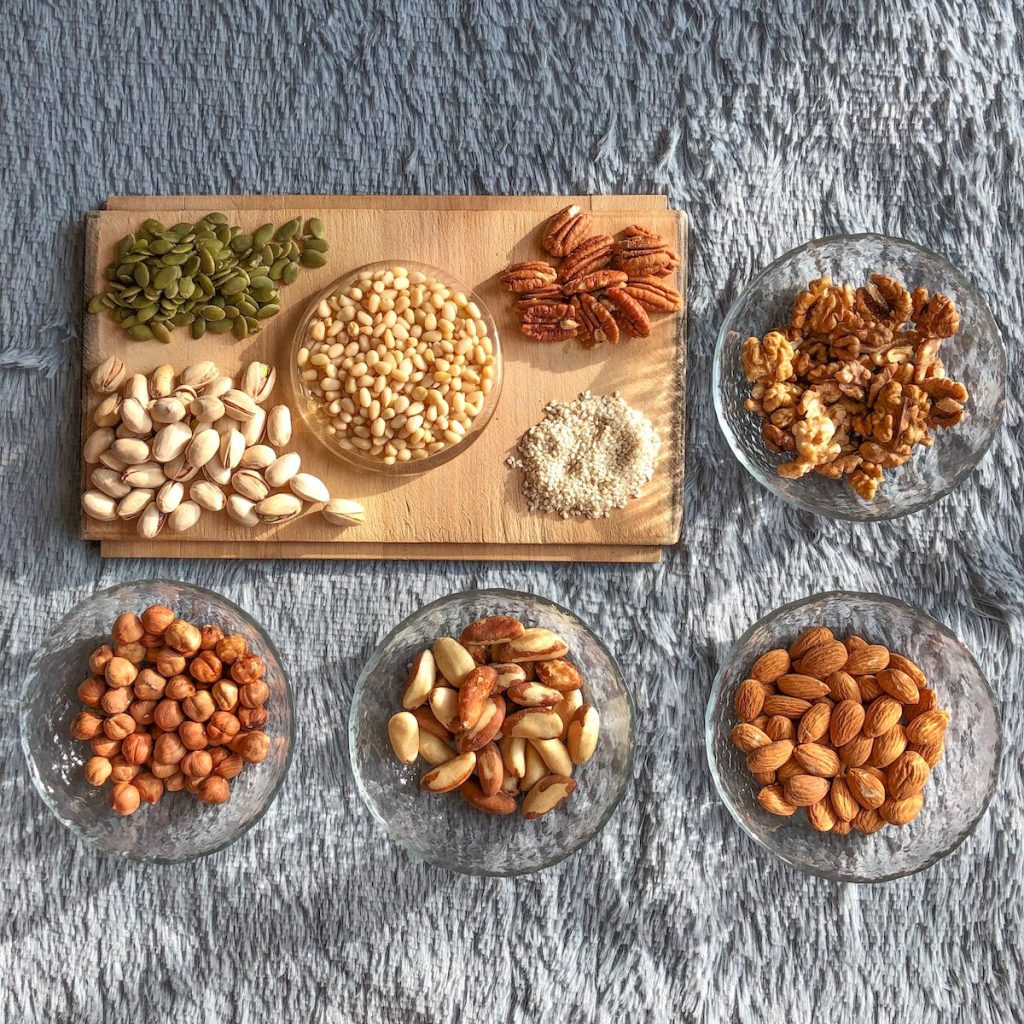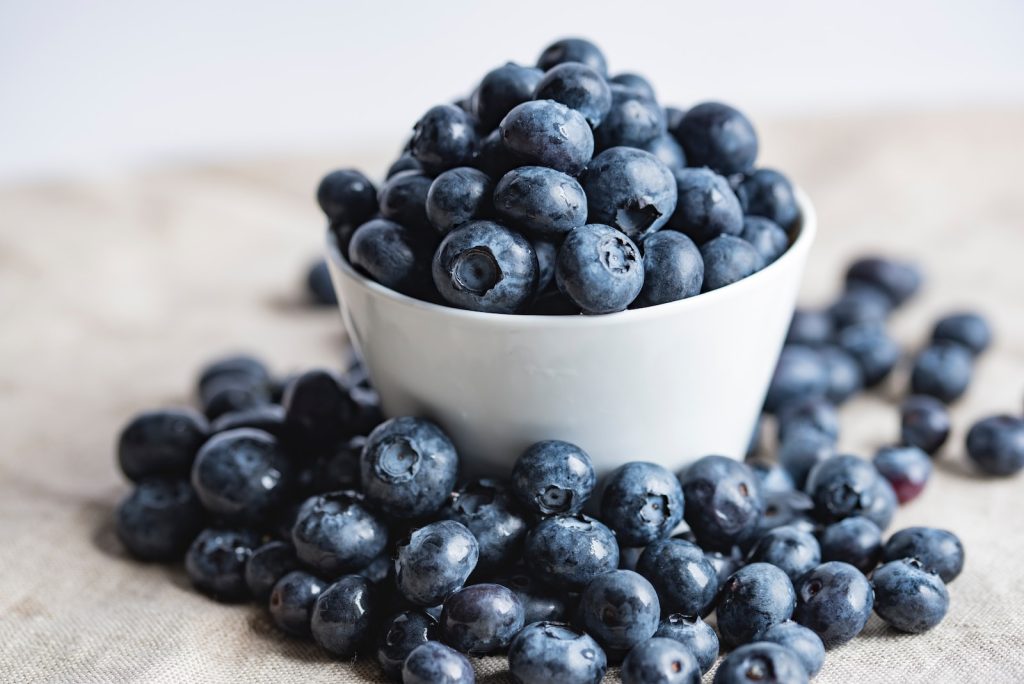Are you looking for a natural and delicious way to improve your memory and cognitive function? Nuts and seeds may be the answer you’ve been searching for. Scientific studies have shown that certain nuts and seeds contain nutrients that are essential for brain health and can help improve memory and cognitive function, especially in those over 55 years old.

Walnuts, almonds, and pumpkin seeds are three of the best nuts and seeds for improving memory and cognitive function. Walnuts are high in omega-3 fatty acids, which are important for brain health and can help improve cognitive function. Almonds are rich in vitamin E, which has been shown to improve memory and cognitive function in older adults. Pumpkin seeds are a great source of zinc, which is essential for brain health and can help improve memory and cognitive function.
Incorporating these nuts and seeds into your daily diet is easy. You can snack on them throughout the day, sprinkle them on top of salads or yogurt, or add them to your favorite recipes. By including these nutrient-rich nuts and seeds in your diet, you can help improve your memory and cognitive function and enjoy a delicious and healthy snack at the same time.
The Power of Nuts and Seeds For Boosting Brainpower

As you age, it’s natural to worry about cognitive decline and memory loss. Fortunately, research has shown that certain nuts and seeds can help improve cognitive function and memory in older adults. Here are three of the best options:
1. Walnuts
Walnuts are loaded with nutrients that can help improve brain function. They contain high levels of antioxidants and omega-3 fatty acids, which can help reduce inflammation and improve blood flow to the brain. A study published in the Journal of Nutrition, Health, and Aging found that eating walnuts daily improved cognitive function in older adults.
To incorporate walnuts into your diet, try adding them to your morning oatmeal or yogurt, or simply eating a handful as a snack.
2. Almonds
Almonds are another great option for boosting cognitive function and memory. They are high in vitamin E, which has been shown to improve cognitive function in older adults. Almonds are also a good source of magnesium, which can help reduce inflammation and improve brain function.
To incorporate almonds into your diet, try adding them to your salads or smoothies, or eating them as a snack.
3. Pumpkin Seeds
Pumpkin seeds are an excellent source of zinc, which is essential for brain function and memory. They also contain magnesium, which can help reduce inflammation and improve brain function. A study published in the Journal of Alzheimer’s Disease found that pumpkin seed oil improved cognitive function in older adults with mild cognitive impairment.
To incorporate pumpkin seeds into your diet, try adding them to your trail mix or sprinkling them on top of your salads.
Incorporating these nuts and seeds into your diet is an easy and delicious way to improve cognitive function and memory as you age.
Walnuts: The Brain’s Best Friend
If you’re looking for a delicious snack that can also boost your brainpower, look no further than walnuts. These tasty nuts are packed with nutrients that have been shown to improve memory and cognitive function, especially in older adults.
Scientific Evidence
Studies have evaluated the effects of walnut consumption on cognitive performance and memory improvements. In two clinical trials, healthy adults on a Mediterranean diet supplemented with mixed nuts (walnuts, hazelnuts, and almonds) daily showed better cognitive function than the control group on a low-fat diet. [1]
Walnuts are also rich in polyunsaturated fatty acids, which are essential for brain function and development. These fatty acids have been shown to improve cognitive function and memory in older adults. [2]
Additionally, walnut oil has been shown to protect cells from oxidative stress, enhance brain cell function, and reduce the formation of markers of Alzheimer’s progression known as beta-amyloid. [3]
Incorporating Walnuts into Your Diet
Incorporating walnuts into your daily diet is easy and delicious. Here are some simple ways to enjoy walnuts:
- Snack on a handful of walnuts as a midday snack.
- Add walnuts to your favorite salad for a delicious crunch.
- Mix walnuts into your oatmeal or yogurt for added texture and flavor.
- Use walnuts as a topping for roasted vegetables or sweet potatoes.
- Make your own homemade walnut butter to spread on toast or fruit.
Overall, walnuts are a tasty and convenient way to improve your brain health and cognitive function. Incorporate them into your daily diet to reap the benefits.
References
- Walnuts: Healthy Omega-3s, Brain Benefits, Serving Size – Verywell Health
- Walnuts May Support Brain Function in Older Adults, Study Shows – Verywell Health
- Are Walnuts Good for Your Brain? Experts Explain | livestrong
Almonds: The Memory Booster

If you’re looking for a delicious and easy way to improve your memory and cognitive function over the age of 55, look no further than almonds. These tasty nuts are packed with nutrients that have been shown to enhance brain health and function.
Scientific Evidence
Studies have found that almonds are rich in vitamin E, which is a powerful antioxidant that can help protect the brain from damage caused by free radicals. In fact, one study found that consuming almonds on a regular basis can improve memory and cognitive function in older adults.
Almonds are also a good source of healthy fats, such as monounsaturated and polyunsaturated fats, which can help reduce inflammation in the brain and improve overall brain function. In addition, almonds contain magnesium, which has been shown to play a role in cognitive function and memory.
Incorporating Almonds into Your Diet
Adding almonds to your diet is easy and delicious. Here are a few simple ways to incorporate almonds into your daily routine:
- Snack on a handful of almonds between meals for a quick and healthy pick-me-up.
- Add chopped almonds to your morning oatmeal or yogurt for a satisfying and nutritious breakfast.
- Use almond flour in place of regular flour in your favorite baked goods for a healthier twist.
- Make your own almond butter by blending almonds in a food processor until smooth, and spread it on toast or fruit for a tasty snack.
By adding almonds to your diet on a regular basis, you can improve your memory and cognitive function over the age of 55 while enjoying a delicious and nutritious snack.
Flaxseeds: The Cognitive Enhancer

Flaxseeds are a tiny, but mighty, seed that have been shown to have numerous health benefits, including improving cognitive function. Here, we will explore the scientific evidence behind flaxseeds and their cognitive-enhancing properties, as well as ways to incorporate them into your daily diet.
Scientific Evidence
Flaxseeds are rich in omega-3 fatty acids, which have been linked to improved cognitive function in aging adults. A study published in the Journal of Alzheimer’s Disease found that consuming flaxseeds daily for 6 months improved cognitive function in older adults with mild cognitive impairment. Another study published in the Journal of Nutrition found that consuming flaxseeds daily for 12 weeks improved cognitive function in healthy young adults.
In addition to their omega-3 content, flaxseeds also contain lignans, which are plant compounds that have been shown to have neuroprotective effects. A study published in the Journal of Nutrition found that lignans from flaxseeds improved cognitive function in older adults with mild cognitive impairment.
Incorporating Flaxseeds into Your Diet
There are many easy ways to incorporate flaxseeds into your daily diet. Here are a few ideas:
- Add ground flaxseeds to your morning smoothie or yogurt.
- Use flaxseed oil as a salad dressing or drizzle it over cooked vegetables.
- Mix ground flaxseeds into your pancake or waffle batter.
- Sprinkle ground flaxseeds over your oatmeal or cereal.
It’s important to note that flaxseeds should be ground in order to fully absorb their nutrients. Whole flaxseeds will pass through your digestive system undigested.
In conclusion, flaxseeds are a simple and delicious way to improve cognitive function and protect against age-related cognitive decline. By incorporating them into your daily diet, you can reap their numerous health benefits.
Practical Tips for Daily Nut and Seed Consumption

Incorporating nuts and seeds into your daily diet is easy and can be quite delicious. Here are some practical tips for consuming nuts and seeds on a daily basis:
1. Add nuts and seeds to your breakfast
Start your day off right by adding nuts and seeds to your breakfast. You can sprinkle them on top of your yogurt or oatmeal, or add them to your smoothie. Chia seeds, flaxseeds, and walnuts are great options to try.
2. Snack on nuts and seeds
Nuts and seeds make great snacks to keep you energized throughout the day. Keep a small bag of almonds, pumpkin seeds, or pistachios in your bag or desk drawer for a quick and easy snack.
3. Use nuts and seeds in your cooking
Nuts and seeds can add a delicious crunch and flavor to your meals. You can use them as a topping for salads, stir them into your stir-fry, or add them to your baked goods. Try using sesame seeds, sunflower seeds, or pecans in your cooking.
4. Make your own nut and seed mix
Create your own custom nut and seed mix to have on hand for when you need a quick snack. Mix together almonds, cashews, and pumpkin seeds for a delicious and nutritious snack.
5. Soak your nuts and seeds
Soaking nuts and seeds can help to increase their nutrient absorption and make them easier to digest. Simply soak them overnight in water and then rinse them before consuming. This is especially important if you have digestive issues.
By incorporating nuts and seeds into your daily diet, you can improve your cognitive function and memory. Try out these practical tips to make it easy and enjoyable to consume nuts and seeds on a daily basis.
Conclusion
Incorporating nuts and seeds into your diet can be an easy and delicious way to improve memory and cognitive function, especially for those over 55. Based on scientific studies and research, the following three nuts and seeds have been shown to be particularly beneficial:
- Walnuts: Walnuts have been found to improve memory and cognitive function due to their high levels of antioxidants and omega-3 fatty acids. Studies have shown that consuming walnuts regularly can improve memory recall and processing speed.
- Flaxseeds: Flaxseeds are a great source of omega-3 fatty acids and have been shown to improve cognitive function in older adults. They may also help reduce inflammation in the brain, which can contribute to cognitive decline.
- Pumpkin seeds: Pumpkin seeds are rich in zinc, which has been linked to improved memory and cognitive function. They also contain antioxidants and omega-3 fatty acids, making them a great addition to your diet.
Incorporating these nuts and seeds into your diet is easy. You can add them to your morning oatmeal or yogurt, sprinkle them on top of salads, or snack on them throughout the day. With their delicious taste and numerous health benefits, there’s no reason not to add them to your diet today.
Disclaimer: The information provided in this blog is for educational purposes only and is not intended as a substitute for professional medical advice. Always consult with your physician or another qualified healthcare provider before starting any new treatment or with any questions you may have regarding a medical condition. We also cannot guarantee the accuracy of the scientific studies mentioned.
David, a dedicated superfood enthusiast, has spent over a decade delving deep into the healing and rejuvenating powers of superfoods. With his vast knowledge, he passionately shares insights on how these natural wonders can optimize health and vitality for modern lifestyles.




